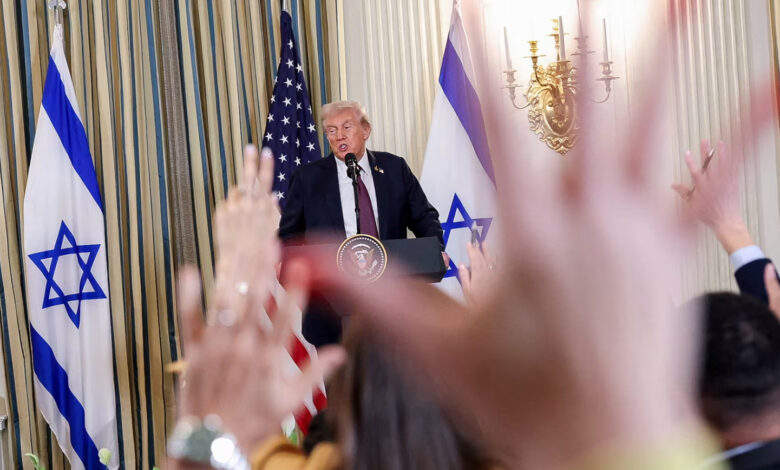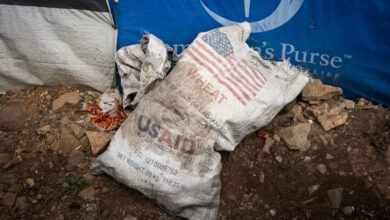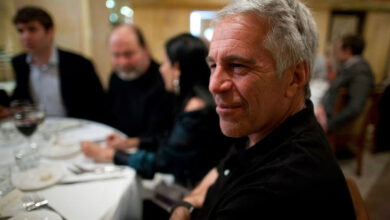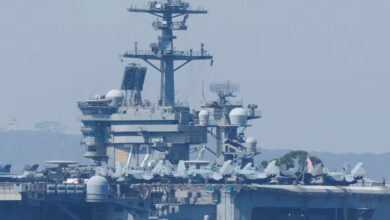
More than a month after US President Donald Trump announced a ceasefire in Gaza, a key component of his plan has yet to materialize. The 20-point plan calls for a multinational force to stabilize the battered enclave, but potential participants say critical details about its mandate are still not finalized.
Trump announced his plan to end the war in Gaza on September 29, saying the International Stabilization Force (ISF) was expected to deploy “immediately” to train Palestinian police, secure borders with Israel and Egypt, block munition inflows and enable further withdrawal of Israeli troops from Gaza.
The first phase of the ceasefire involved the release of hostages from Gaza and Palestinian prisoners and detainees from Israel. The second phase of Trump’s plan requires the formation of the ISF. While US officials have floated several possible contributors, and some nations have expressed interest, none have formally announced participation.
Potential participants are seeking clarity and assurances before committing troops to Gaza, which is now facing armed militias, criminal gangs, and the threat of Israeli strikes with no sign of Hamas disarming. The force would be an unprecedented multinational effort to stabilize the territory that had been controlled by Hamas since 2007.
A Middle East official familiar with the plans told CNN that nations expected to take part in the mission are still in discussion with the US over key issues including the size of the force, the number of personnel each nation will contribute, the chain-of-command, who would lead decision-making, and the duration of deployment of the force.
Israel has voiced concern over participants in the force, saying it will not tolerate the involvement of nations it views as antagonistic, like Turkey, which played a crucial role in getting Hamas to agree to a ceasefire.
“These matters of composition, lack of clarity around the specifics of, for example, the disarmament mandate, and the uncertainties around what interaction and coordination will inevitably entail with the Israel Defense Forces, undoubtedly raise challenges for launching,” Lucy Kurtzer-Ellenbogen, a senior fellow with the Middle East Institute, said.
The regional official told CNN that some potential participating nations have insisted that the force only be transitional, with a capped timeline until an “empowered” Palestinian Authority can fully assume control in Gaza.

Countries are also requesting an international mandate that would formalize the ISF’s legitimacy, the regional official said, adding that some potential participants have demanded a United Nations Security Council resolution. US Secretary of State Marco Rubio suggested during a visit to Jerusalem last week that a mandate could also come through an international agreement.
“We’re working on some language on that now that hopefully will be in place… we will need something… because some of these countries by their own laws can’t participate in these efforts unless they have some sort of international mandate or flag that they’re under,” Rubio said in Jerusalem.
‘Running around Gaza on patrol with weapons’
Jordan’s King Abdullah II told the BBC in an interview this week that the mandate is needed to determine whether the ISF will be “peacekeeping” or “peace enforcing” force, warning that countries would not like to be “running around Gaza on patrol with weapons” in a “peace enforcing” capacity.
“What is the mandate of security forces inside of Gaza? And we hope that it is peacekeeping, because if it’s peace-enforcing, nobody will want to touch that,” he warned.
Other issues include how heavily armed the troops would be, how the force would interact with the Israeli military and whether it would be prepared to get involved if internal clashes break out in the enclave.
US officials have cited several countries as potential participants, including Egypt, Qatar, the United Arab Emirates, Indonesia, Azerbaijan and Turkey. Pakistan has also said it could be part of the force.
Netanyahu said on Sunday that Israel will determine which international forces it deems acceptable to enter Gaza after the war.
Vance addressed questions about Turkish involvement in Gaza during a press conference in Israel last week and said any foreign troops that will be stationed in Gaza will require Israel’s explicit consent.
“What troops are on the ground in Israel – and Gaza – is going to be a question the Israelis have to agree to,” he said, praising Turkey’s “very constructive” role in facilitating the ceasefire.
Netanyahu’s office said Israel is dedicated to the plan, and welcomes “a responsible and potent ISF” which it described “as a key element towards reaching the goal of all those wishing to usher in a new era of stability for the Strip.”




